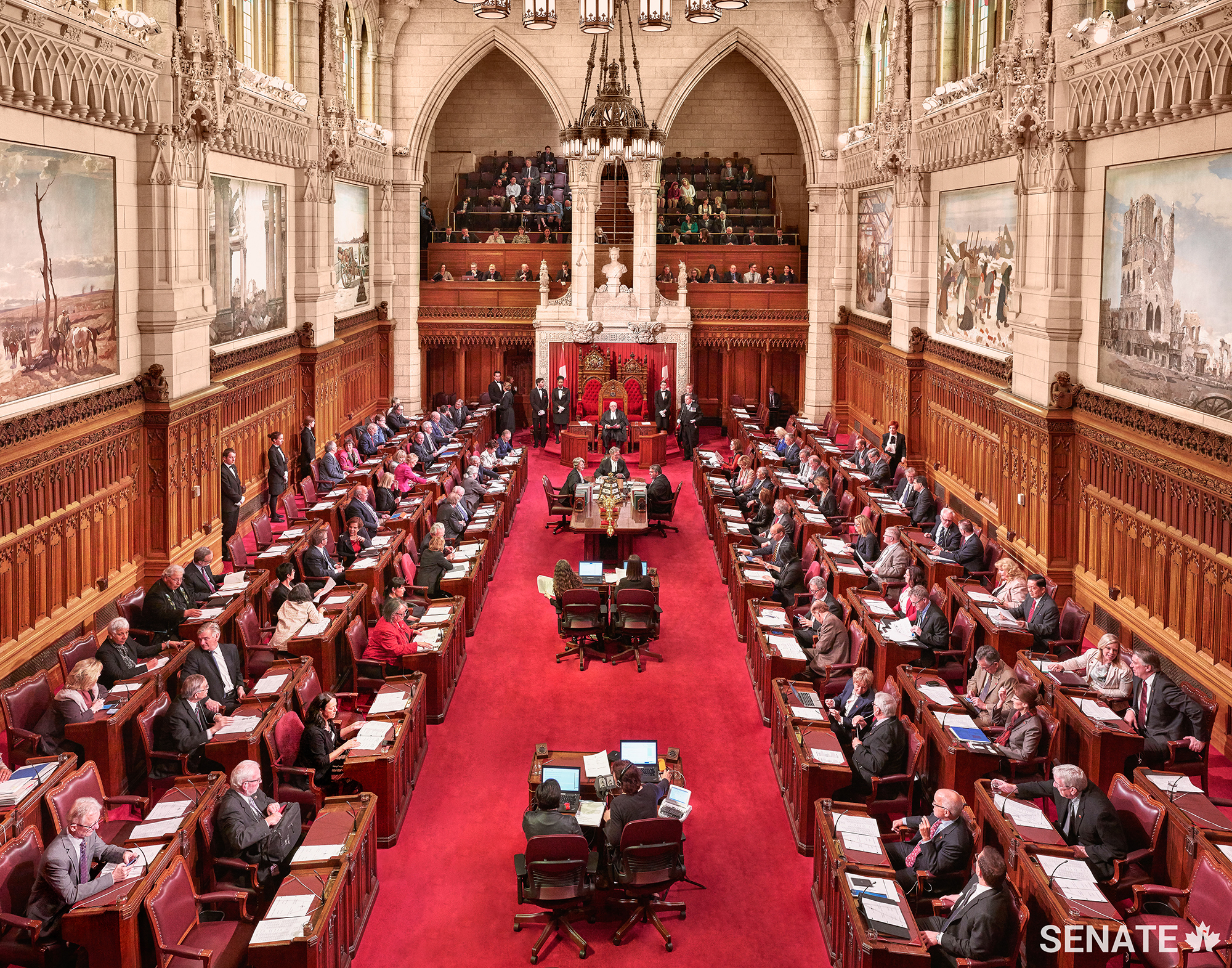Debates of the Senate gives Canadians a record of Red Chamber’s proceedings

The Senate is known as Parliament’s chamber of sober second thought, a constitutional role it has played since Confederation. Senators study and vote on countless important issues that directly affect the lives of all Canadians. That’s why it’s important for all citizens to be able to know what senators say and what goes into their deliberations.
Senators prepare speeches and make contributions in order to debate issues in the Senate Chamber. The Debates of the Senate is the official published written version of what takes place when the Senate is in session. Senators’ words become part of the public record of Parliament’s upper house.
In a democracy, it is essential for legislatures to be transparent. Canadians have a right to know what their Parliament is doing, the decisions their representatives make and the thinking behind each decision.

The Debates of the Senate is a written record of what was said in the Senate Chamber that is published after each sitting. It is not a verbatim transcript, but is edited to reduce repetition and increase clarity. Senators can correct errors or make small changes after they have seen the draft record, known in Parliament as the “blues”.
The online version of the Debates of the Senate has a link to each sitting’s debate. Clicking on the link opens a searchable document reflecting everything that was said in the Chamber that day. For example, Canadians can look up the results of a vote, what any senator said about a given bill, questions a senator asked during Question Period or statements a senator made about an important issue in his or her region.
The Debates of the Senate is published separately in English and French. Senators speak in either official language and those words are then translated in the other. Both the English and French publications indicate whether the words were spoken in that language or were translated.
The Senate’s Chamber Operations and Procedure Office is responsible for publishing the Debates of the Senate. The document itself is prepared after each sitting of the Senate. Any notes a senator used while delivering a speech are collected by Senate pages to be used as reference materials.
Originally, the Debates of the Senate was printed in daily versions which were then compiled and published in a bound, book form. Hundreds of these books were distributed to libraries and resource centres throughout Canada. Today, the Debates of the Senate is available online, putting all that information in a searchable form at Canadians’ fingertips. The bound, book version is still published at the end of each parliamentary session but far fewer copies are made.


